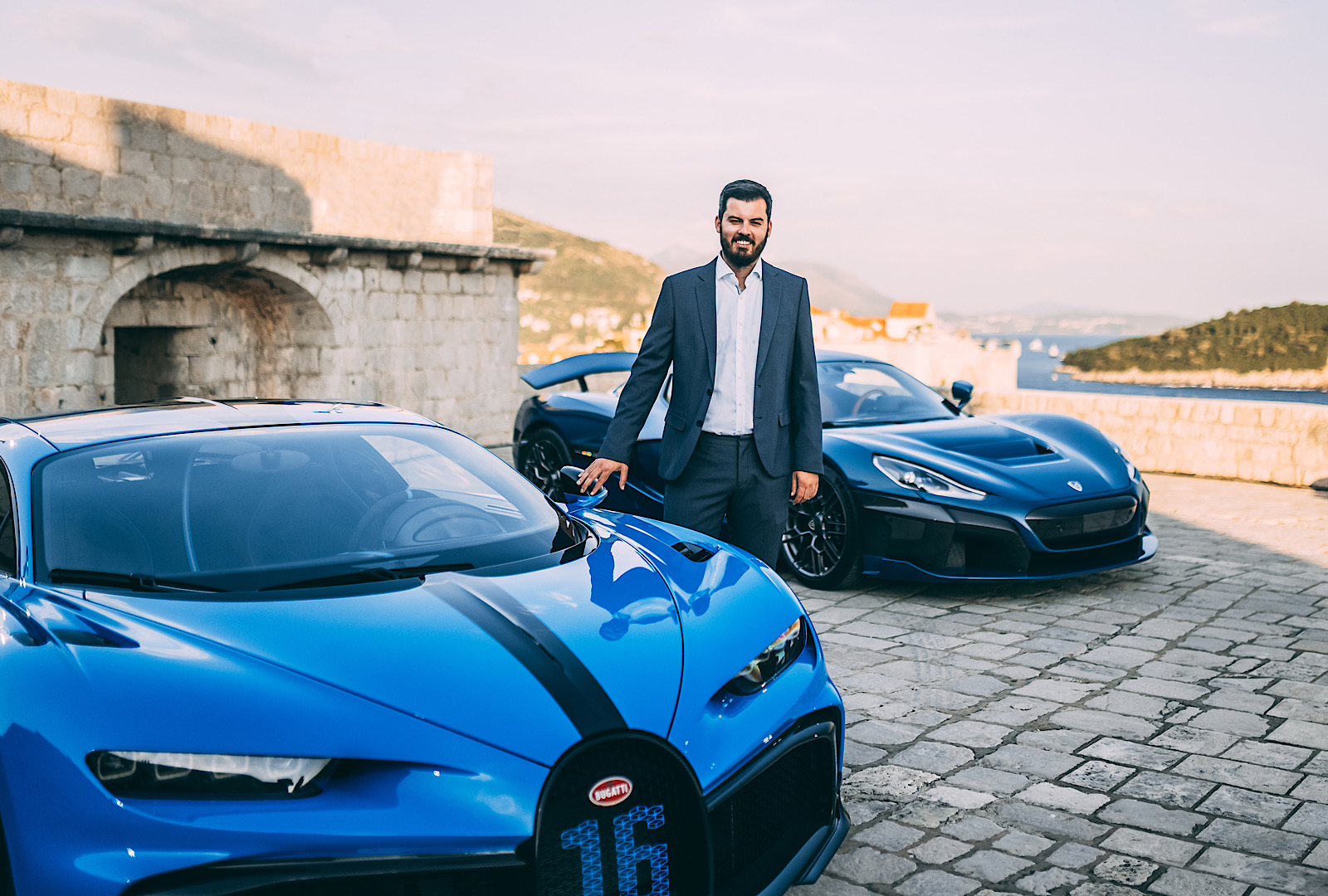
It's been 12 years since Mate Rimac started the burgeoning car company that bears his surname. In automotive years, that's barely a preamble when you compare it to the lengthy histories of Ford Motor Company, Mercedes-Benz and Bugatti.
In the decade-plus since, the Croatia-based company has grown to 1,500 employees, with much of the hires happening rapidly over the last few years. According to the boss, more than half of those employees are engineers.
Two months ago, the company split into two, with Rimac Technology taking over electrified powertrain and tech component responsibilities while Rimac Automotive became the home of hypercar development and production.
Rimac Group is the holding company for both ventures and has Mate Rimac as its CEO.
The Group's shareholders include Porsche (24 percent), Hyundai Motor Group (12 percent), Mate Rimac (37 percent), and other investors (27 percent).
Rimac Group owns 55 percent of Bugatti. Porsche, which is under the Volkswagen Group umbrella, owns the remaining shares.
Earlier this year, SoftBank Vision Fund 2 and Goldman Sachs invested in the Group, providing Series D financing in the amount of $536 million USD that provides the company even more solid footing moving forward.

It's part of a multi-pronged approach that company CEO Rimac explained, "On one side we have the big car companies that are supporting us. Then, a big tech investor, which is SoftBank; and Goldman invests in industrial and in financial institutions. So it seems like a very good balance for us and the right people to support us in the different areas."
In a roundtable interview with reporters last month, the CEO gave an overview of the state of the company's business saying that more than the war in Ukraine and economic difficulties in Russia, COVID-19 pandemic-related lockdowns in China have hampered production.
Specifically citing electronic components from the country as its number one stumbling block in the current economy, Rimac Group's CEO told Newsweek that the company is paying "huge, incredible premiums" of as much as 10, 20 and 30 times the regular price to secure the technologies.
While many automakers are having difficulties procuring wiring harnesses that are traditionally constructed by 70,000 people's hands in Ukraine, Rimac Automotive has vertically integrated in such a way that their harnesses are constructed in-house.
The businessman sympathizes with what other automakers are going through saying, "There's no way to replicate that [with machinery]. It's always manual [labor]."
Vertically integrated manufacturing is just one of the keys to Rimac's success. The CEO explained that diversification of its business interests is helping it hit revenue goals.

"We have revenues from Day One, pretty much," the CEO said. "We have been profitable for most of our operational time and while many, many other companies in the business … they didn't generate revenues for a very long time ... I think this industry has been worn out a bit by a lot of announcements that haven't been kept up."
The company's sustained growth is a pathway that numerous other startups are working to achieve. Mullen Automotive Inc. is one such company. It is currently testing a solid-state battery that would be able to deliver over 600 miles of range on a full charge in a crossover. From there, Mullen plans to make its own crossover.
Despite all the success, Rimac is hush-hush about the company's future saying, "We don't want to generate hype or expectations," and pointing to the level of surprise that was achieved when the Bugatti-Porsche-Rimac deal was announced as a success.
He hinted, however, that he, and Rimac Group, are just getting warmed up.
"You know, we never announced that we would take over Bugatti," Rimac said. "We announced when it was done after working three years on that. So, there is a lot of stuff cooking that is a lot more interesting and exciting than making batteries for big car companies, but there will be another time to talk about. So I would say, 'Follow us,' it will be interesting in the coming years and there will be lots of stuff that is difficult to expect at the moment looking from the outside."
Uncommon Knowledge
Newsweek is committed to challenging conventional wisdom and finding connections in the search for common ground.
Newsweek is committed to challenging conventional wisdom and finding connections in the search for common ground.
About the writer
Eileen Falkenberg-Hull leads the Autos team at Newsweek. She has written extensively about the auto industry for U.S. News & ... Read more
To read how Newsweek uses AI as a newsroom tool, Click here.





